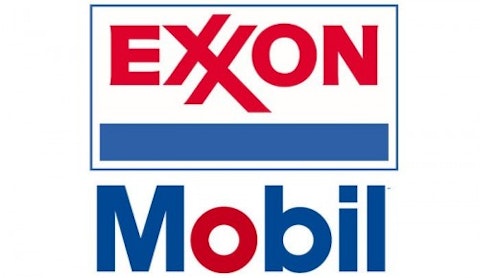The U.S. shale oil and natural gas revolution has created natural gas oversupply, which in turn drove natural gas prices to decade lows in early 2012. Prices have rebounded from the recent lows to $4.18 per million Btu, rising some 111% from the year-earlier levels. However, the U.S. Energy Information Agency (EIA) forecasts Henry Hub spot natural gas prices to remain below $4.00 per million Btu, in nominal terms, through 2017.
On average, prices are expected to grow at a modest pace of 4.1% per year in the 2011-2040 period. But, they have already moved well above the EIA projection for 2013, although the current rally is unlikely to lead to much higher prices this year, as depleted storage levels become replenished.
In response to a rebound in natural gas prices, prices of several natural gas-related stocks have moved higher in tandem. Further gains will likely be measured in the near term, depending on the natural gas price response to inventory dynamics. In fact, a near-term correction in prices may create better entry points in several natural gas plays for the long haul. The following four stocks with yields above 2% represent potential long-term natural gas plays for dividend investors focused on total returns.
Let’s take a look at the list
As its focus extends beyond U.S. borders, the company has sought (through a joint venture with Qatar Petroleum) and received a U.S. government license to export liquefied natural gas to international markets where natural gas prices are even higher than those in the United States. Given that Exxon produces 3,847 MMcf/day of natural gas, a $1 increase in the natural gas price increases the company’s revenues by approximately $1.4 billion per year. Exxon Mobil Corporation (NYSE:XOM) has a dividend yield of 2.6%, payout ratio of 24%, and five-year annualized dividend growth of 8.6%.
It is currently trading at 11.1x forward earnings, a 17% premium to peers due to its scale. Last quarter, Bill & Melinda Gates Foundation Trust reported owning more than 7.6 million Exxon Mobil shares.
San Juan Basin Royalty Trust (NYSE:SJT) has a 75% net overriding royalty interest carved out of Burlington Resources Oil & Gas Company LP’s oil and gas leasehold and royalty interests located in the San Juan Basin Royalty Trust (NYSE:SJT) in northwestern New Mexico. The trust receives about 75% of its profits from long-life gas wells. The trust’s royalty income almost halved last year, mainly due to a plunge in natural gas prices. As a result, its distributable income and distributions per unit dropped significantly. Based on the distributions for the month of January 2013, the trust units were yielding 2.1%, on an annual basis.
The average distribution for that month was substantially lower than in the same month a year earlier. What’s more, due to production cuts amid harsh winter weather and extraordinary capital costs attributable to five new wells in which the Trust’s royalty interest is relatively high, the trust realized a net loss in the month of February, which prompted it to not declare a cash distribution for that month. Improving weather conditions and rising natural gas prices since February should translate into resumed cash distributions that will grow higher going forward. Value investor Jean-Marie Eveillard’s First Eagle Investment Management held nearly 4.6 million units of San Juan Basin Royalty Trust (NYSE:SJT) last quarter.
But wait, there’s more
On February 14, 2013, the two firms established a conventional assets partnership that provided a total of $573 million in cash proceeds to EXCO and increased EXCO’s liquidity to $474 million. EXCO has used some of the proceeds to repay a portion of its revolving credit facility. EXCO and Harbinger Group currently own economic interests in the partnership of 25.5% and 74.5%, respectively. Back in March, EXCO hiked its dividend by 25%, which boosted its yield to the current 2.6%. EXCO Resources Inc (NYSE:XCO)’s payout ratio is 57% of its current-year EPS estimate. However, the stock is pricey, trading at a forward P/E of 23x.
However, it may have erred in spinning off Cenovus Energy (CVE), its Canadian onshore oil business, too soon, as keeping it could have helped Encana Corporation (USA) (NYSE:ECA) weather the natural gas storm better. ECA is yielding 4.3% on a payout ratio of 125% of its current-year EPS estimate. The payout ratio is expected to improve next year, as analysts forecast the company’s EPS to double from this year’s level.
The company recently amended its Dividend Reinvestment Plan to allow for the issuance of new common stock from its Treasury at a discount of 2% relative to the average market price on the dividend payment date. In terms of valuation, however, the stock is expensive, trading at a forward P/E of 30x—its 2014 earnings multiple is expected to be more acceptable at 15.9x. Last quarter, billionaire Steven Cohen held more than $100 million in this stock.
Final thoughts
In the near term, preferred are stocks of companies such as Exxon Mobil Corporation (NYSE:XOM) that have large natural gas exposure but still benefit from substantial oil and liquids-related revenue sources to mitigate potential natural gas volatility. On the whole, each of the energy players mentioned here have solid growth prospects over the long, long term, and in the interim, solid dividend yields will comfort any investor. Along with market-beating strategies like this, it’s always important to track these types of investment opportunities.
Disclosure: none



